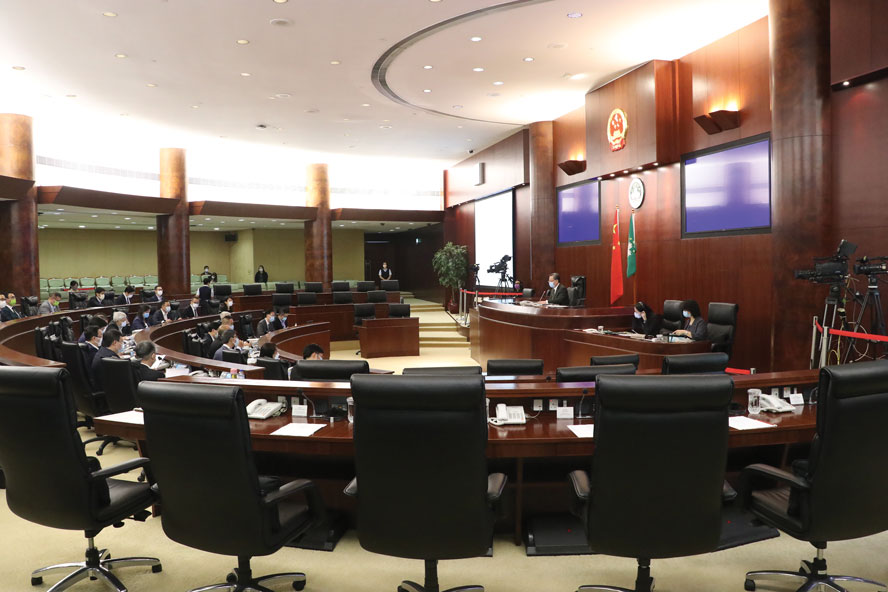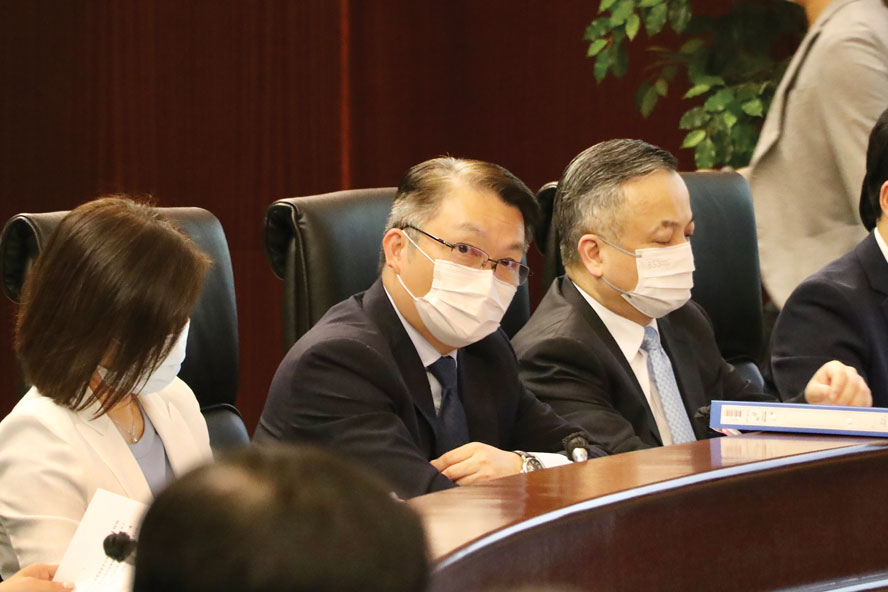With Macau’s new Gaming Law passed by the Legislative Assembly on 21 June, IAG takes a look at the likely timeline for the re-tendering of gaming concessions.
Unless you have been in hibernation since September last year, you would be aware the Macau government has been on a mission to revise the Macau gaming law, and then complete the tendering process for the new round of Macau casino gaming concessions. The last time it did this was way back in 2002.

This time around the concessions will be valid for a maximum of 10 years (plus a possible extension of up to three years at the Macau government’s discretion if extenuating circumstances exist), rather than the previous 20-year period which was to expire on Sunday 26 June 2022 (but was itself extended to 31 December 2022).
With the new gaming law passed by the Legislative Assembly on Tuesday 21 June, the industry is now readying itself for the launch of the tender process, which I believe will take up all of Q3 this year and some of Q4. That process will likely be an “open” tender process – in other words any company may apply – as it was back in 2002. The alternative is that it could be a restricted tender process in which only prequalified companies may apply.
Let’s look at the “open” tender process, which I feel is the more likely procedure, using the process used back in 2002 as a guide.
The first step will be the appointment of a Tender Commission, a group of suitably qualified people who will control and oversee the process. Next, we can expect the tender to be “opened” by means of a letter issued by dispatch of the Chief Executive. This will be an important stage, outlining the rules and procedures of the tender. There could be surprises at this stage – for example the letter could stipulate that there will be five concessionaires, not six. Or that the concession will run for say eight years rather than the widely expected 10. It could even say something totally unexpected such as a certain percentage of the capital of the winning bidders must be owned by Macau locals or Chinese companies. Any other manner of surprise is possible. At the time of writing, in the last week of June, this “opening letter” hasn’t yet issued, but by the time you read these words in July, it may well have. I think it is fair to assume the letter will issue in the first week or two in July, or maybe as early as the final days of June.

After this, there will be a period during which tenderers may ask for clarification of the rules of the tender, and then receive written replies. The replies will almost certainly be made public. This clarification period could take around 30 days. So that takes us to say mid-August.
Next, there will be a period for tenderers to prepare their tender documents and proposals, ending with a submission deadline. Typically for Macau tender submissions, “documents” refers to administrative paperwork proving certain things, such as ownership, financial capacity and so on, whereas “proposals” refers to information outlining what and how the tenderer intends to execute should they win the tender, such as investment commitments, operational and employment plans, strategic goals and so forth. Tenderers will no doubt have to lodge a monetary bond with their submissions, which will likely be refundable should they not win a concession.
These submissions will be weighty tomes, each prepared by a team of people – I’m imagining hundreds or even more than 1,000 pages – so this period needs to be some time, perhaps 60 or 90 days. I have no doubt all six concessionaires are already well advanced in preparing their submissions, which will include all manner of things and will be based upon the tender opening letter and will include anything else the tenderers might consider favorable to their bid. Let’s assume the deadline here would be around the end of October.
 A few days after this deadline the tender documents will be opened – no doubt in front of all tenderers, in a special session overseen by the Tender Commission. They will be checked to see if they meet the minimum qualifications, regulations and procedural requirements outlined in the Tender Opening dispatch. Any which don’t will be eliminated. There will be an appeals process around this procedure which may last a few days. So now we’re somewhere around early November.
A few days after this deadline the tender documents will be opened – no doubt in front of all tenderers, in a special session overseen by the Tender Commission. They will be checked to see if they meet the minimum qualifications, regulations and procedural requirements outlined in the Tender Opening dispatch. Any which don’t will be eliminated. There will be an appeals process around this procedure which may last a few days. So now we’re somewhere around early November.
The next stage will be the opening of the tender proposals of those tenderers whose documents meet the requirements. Again, any tenderers whose proposals don’t comply with the requirements of the Tender Opening dispatch will be eliminated and again there will be an appeals process around this procedure which may last a few days. That puts us maybe one week into November.
After all this is done, there will be a pool of tenderers whose documents and proposals meet the requirements of the Tender Opening dispatch. The Tender Commission will examine the tenders and will likely enter one or more rounds of discussions and negotiations with tenderers – either as a group or individually, or both. It will be the Commission’s role to get the best deal it can for the government, and by extension for the people of Macau. I can see these negotiations lasting perhaps 30 days, which puts us into early December.
 Finally, drafts of new concession contracts will be drawn up, based upon the new Macau gaming law, the Tender Opening dispatch, and the proposals of the tenderers. Even at this stage, I expect negotiations to be ongoing, with the bidders able to provide feedback to the Tender Commission on the draft contracts. After the deadline for these negotiations passes, and the concession contracts are set in stone, the Chief Executive will issue a dispatch announcing provisional winners of the concessions based upon the recommendations of the Tender Commission. These concessions will be provisional based on the specific performance of certain acts, after which the provisional concessions may become final. For example, the provisional winners may have to issue a certain amount of share capital.
Finally, drafts of new concession contracts will be drawn up, based upon the new Macau gaming law, the Tender Opening dispatch, and the proposals of the tenderers. Even at this stage, I expect negotiations to be ongoing, with the bidders able to provide feedback to the Tender Commission on the draft contracts. After the deadline for these negotiations passes, and the concession contracts are set in stone, the Chief Executive will issue a dispatch announcing provisional winners of the concessions based upon the recommendations of the Tender Commission. These concessions will be provisional based on the specific performance of certain acts, after which the provisional concessions may become final. For example, the provisional winners may have to issue a certain amount of share capital.
Budget a couple of weeks for this, which puts us at the 2nd or second or third week of December!
Once all necessary conditions have been met, the Chief Executive will issue yet another dispatch, announcing the final winners of the concessions. After this, there will be a ceremony to sign the concession contracts. This won’t take long, perhaps a week, but this now puts us deep into December – likely after Christmas!
And last of all, once all the above is complete and the concession contracts have been signed, the Secretary for Economy and Finance will write a letter to the winning concessionaires, giving them approval to begin operations from a certain date, presumably Saturday 1 January 2023.
The last full working day of the year for government workers is Friday 30 December. Don’t be surprised if we see the signing ceremony that morning, with the operations approval letter being sent to winning concessionaires that afternoon – with just hours to spare before midnight at the end of 31 December. Happy New Year!





























